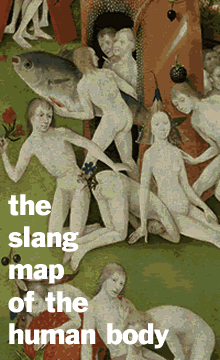banquet-beagle
 photo credit: "Lunch Date" by reagan76 (CC-BY-2.0) Image cropped.
photo credit: "Lunch Date" by reagan76 (CC-BY-2.0) Image cropped.Definition: (noun) a glutton (archaic)
Example: “I’m not inviting Chuck to my Thanksgiving dinner,” said Cynthia, “Last year, that banquet-beagle ate the entire turkey while my back was turned.”
Quote:
“A public, scurrilous, and profane jester…a good feast-hound or banquet-beagle that will scent you out a supper some three miles off…”
This week’s quote comes from Jonson’s 1599 play Every Man Out of His Humor, which contains both unusual characters and unusual language. In addition to Buffone, the playwright introduces Shift, “a thread-bare shark” who enjoys “taking the whiff,” Fastidious Brisk, who “swears tersely and with variety” and Sordido, “a wretched hob-nailed chuff, whose recreation is reading of almanacks.” A shark was someone who lived on borrowed money; taking the whiff meant using tobacco. As for hob-nailed chuff, that was slang for an unsophisticated country person in Jonson’s time.
However, my principal interest lies in the “banquet beagle,” since gluttony seems a particularly timely topic. This Thursday is Thanksgiving in the US, and for many people that holiday dinner is the biggest meal they will have all year.
Jonson’s term feast-hound was the precursor to synonyms chow-hound and hash-hound, both from the early twentieth century. Like banquet-beagle, these refer to dogs, which possess both voracious appetites and excellent tracking abilities. On a different note, not long after Every Man Out of His Humor made its debut, Sir Thomas Urquhart was calling gluttons bacon-pickers in a translation of Rabelais.
Fifty years after that, overeaters were gully guts and greedy guts. While the former has gone out of fashion, the latter is current, used for everything from a British sandwich shop to an online game about eating. But for Turkey Day (Thanksgiving), the most appropriate nickname is probably gobble guts, from the seventeenth century.



